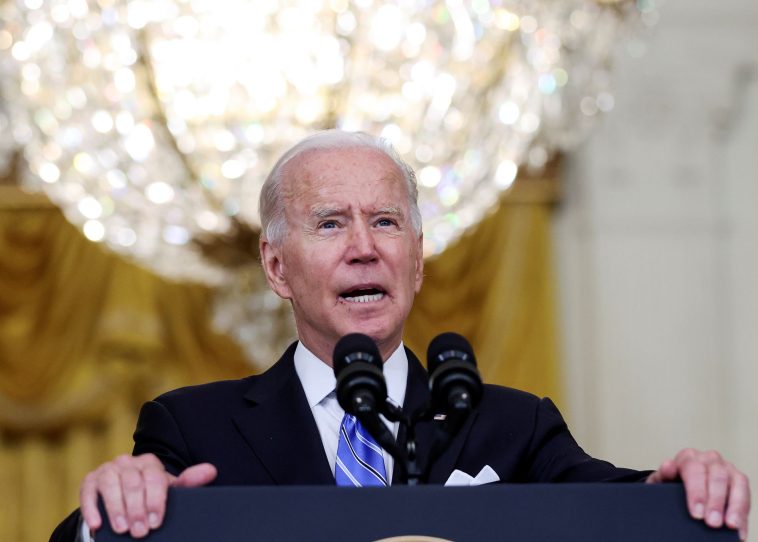The presidency of Joe Biden took a sharp downward turn with the ill-fated events of August 2021. A disastrous withdrawal from Afghanistan marked this period, tarnishing America’s global reputation and damaging Biden’s personal standing. His recovery from this political setback seems unlikely. The House Foreign Affairs Committee has documented the entire sorrowful event with a detailed 353-page document.
It emphatically underscores that Biden spearheaded the entire operation. Even amid mounting warnings from numerous corners, he remained obstinate, pushing forward with the withdrawal. His persistence could be compared to the stubbornness of someone who regularly errs but seldom reconsiders their decisions. It’s apt to observe that Biden was the chief architect behind the Afghanistan debacle.
Almost every influential diplomatic and military official was cautioning against the proposed withdrawal. The facts outlined in the report reveal a universal disapproval from authoritative forces. Notably, the Secretary of Defense, the Chairman of the Joint Chiefs, the Commander of U.S. Central Command, the Secretary of State, the Director of National Intelligence Office, and the Commander of NATO’s Resolute Support Mission and United States Forces voiced their opposition.
The NATO ministerial meeting of March 2021 saw Secretary of State Antony Blinken bombarded with arguments against the withdrawal. Blinken, visibly disturbed by NATO’s strong opposition, relayed their concerns to Biden, even mentioning they resonated in ‘quadraphonic sound.’ Yet Biden, dismissive of all this pushback, claimed his decision was predicated on the Doha agreement.
Biden consistently justified his decisions citing the Doha agreement, a deal initiated by the Trump administration with the Taliban in February 2020. The agreement stipulated the removal of U.S. troops contingent on the Taliban’s adherence to certain obligations. However, the report lists various officials who attested to numerous breaches of the Doha agreement conditions by the Taliban.
Eminent officials such as Ambassador Ross Wilson in Afghanistan, the regional security officer for the Embassy in Kabul, and several diplomats and senior military officials highlighted these violations. Despite adviser recommendations to Biden to establish ‘conditionality’ before withdrawal, he disregarded the advice, tragically setting the stage for what was to come.
Chairman of the joint chiefs, Mark Milley, predicted the imminent collapse of the Afghan government and the Taliban’s resurgence following a complete U.S. withdrawal. A July report from CENTCOM forecasted the potential dysfunction of the crucial Afghan Air Force as contractors would also be leaving alongside U.S. troops.
Meanwhile, the Taliban was progressively expanding its control as the U.S. was scaling down — they tripled their jurisdiction of districts from mid-April to mid-July. The writing was clearly on the wall. A repeat of Saigon’s Fall stared ominously back at us, and yet, the necessary measures to prevent it were neglected.
An urgent cable was sent through the embassy’s Dissent Channel, pleading for serious evacuation planning, house-quicked visa application processing for Afghan colleagues, and more efforts to ensure the security of those who had assisted us. But it was all too late. The Taliban captured Kabul, and chaos quickly followed.
The Kabul airport — at that point the only viable escape route, was mobbed. What ensued was a chaotic final evacuation. The security situation became so dire that we bizarrely had to depend on the Taliban for its provision. The disastrous outcomes of this chaos will forever be etched in our minds, exemplified by the heart-rending attack at Abbey Gate that claimed 13 of our service members’ lives.
The report concludes that we left an estimated 1,000 Americans stranded and denied access to America for 90% of Afghans holding special visa eligibility. Tremendous amounts of armaments and a substantial $57 million in currency were also left behind. The Taliban has since embarked on exterminating anyone who cooperated with the U.S., creating a haven for terrorism, and holding American citizens hostage.
The above reality would be a nightmare for anyone to associate with. Yet, Vice President Kamala Harris, at the time, took pride in being the ‘last person in the room’ when making these erroneous decisions. She continues to describe Biden’s calamitous decision as ‘courageous and right,’ revealing a refusal to acknowledge the gravity of the blunder.
Quoting Winston Churchill’s maxim following Dunkirk, a truly heroic operation, ‘Wars are not won by evacuations.’ However, Biden’s presidency aptly demonstrates just how much can be sacrificed during one. His interpretation of ‘courageous and right’ turned into a disastrous exit strategy that the world will not forget in a hurry.
In summation, Biden’s handling of the Afghanistan withdrawal will undoubtedly be etched into the annals of his presidency as a severe mishap. His insistence on pursuing a dangerous course of action, despite the mounting warnings and sound advice from military and diplomatic officials, displayed a worrisome disregard for potential consequences.
This broader picture of the Biden presidency confirms the frailty, stubbornness, and misplaced bravado that underlie its approach. As future events unfold, one can only hope that lessons have been learned from this episode in order to safeguard American interests and maintain the country’s credibility on the global stage.


